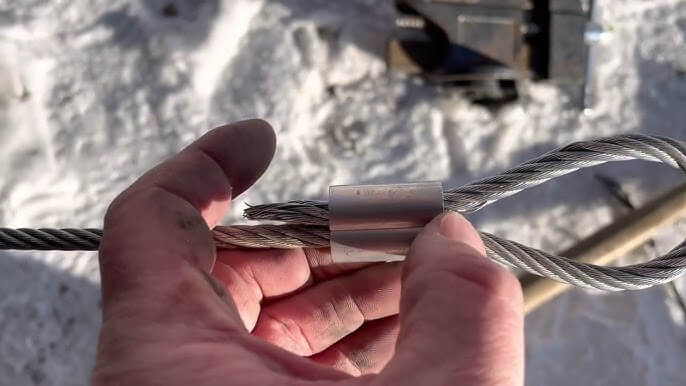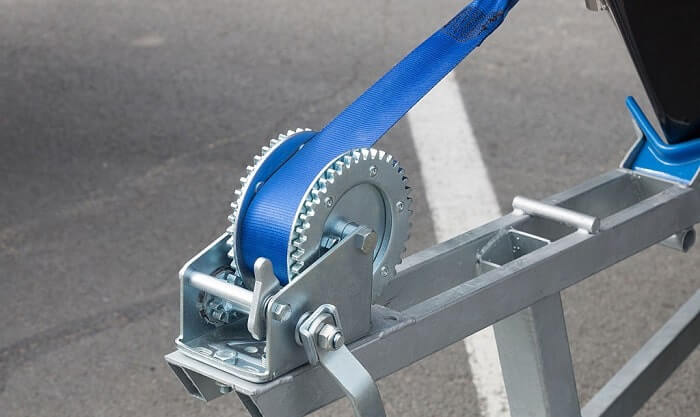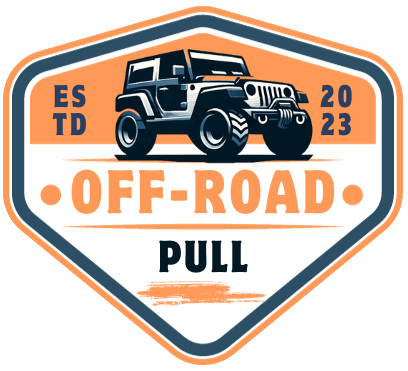When it comes to towing and recovery operations, selecting the right tool for the job is crucial. Two common options are winch cables and winch straps, each with its own set of advantages and disadvantages.
In this article, we’ll explore the key differences between these two tools and help you determine which one best suits your needs.
What is a Winch Cable?

A winch cable, typically made of steel or synthetic fibers, is a robust cable wound around a drum of a winch. This tool is indispensable in the towing, recovery, and hoisting industries due to its strength and durability.
Materials Used in Winch Cables
Winch cables are commonly made from steel or high-modulus synthetic fibers like Dyneema. Steel cables are prized for their high tensile strength and excellent heat resistance, while synthetic cables are lighter and often stronger pound-for-pound compared to steel.
Advantages of Using a Winch Cable
- Strength and Durability: Steel cables can handle extremely heavy loads, making them suitable for commercial and industrial applications.
- Resistance to Abrasion and Corrosion: With proper coating, steel cables are less prone to environmental damages.
- Compact Storage: Despite their strength, cables can be neatly wound around the winch drum, saving space.
Disadvantages of Using a Winch Cable
- Potential for Causing Injury: If not handled properly, steel cables can cause severe injuries due to their rigidity and potential to snap under extreme tension.
- Limited Flexibility: Unlike straps, cables have very little stretch, which can be a disadvantage in dynamic towing situations.
- Risk of Kinking or Fraying: Steel cables can kink or fray over time, which compromises their integrity and safety.
What is a Winch Strap?

A winch strap is a flat, webbed strap, usually made of polyester or nylon, designed for securing and towing loads. These straps are popular due to their ease of use and flexibility.
Materials Used in Winch Straps
Most winch straps are crafted from durable fabrics like polyester, which offers resistance to UV light and abrasion, or nylon, known for its elasticity and strength.
Advantages of Using a Winch Strap
- Flexibility and Versatility: Straps can be easily manipulated and wrapped around various loads and anchor points.
- Reduced Risk of Injury: Straps are safer to handle compared to cables and pose less risk of injury if they snap.
- Easier to Handle and Store: Lightweight and pliable, straps can be quickly rolled up and stowed away.
Disadvantages of Using a Winch Strap
- Lower Tensile Strength: While strong, straps do not typically bear loads as heavy as those cables can handle.
- Susceptibility to UV Damage and Wear: Over time, exposure to sunlight can degrade the fibers of a strap, reducing its lifespan.
- Potential for Stretching: Nylon straps, in particular, may stretch under load, which could be problematic in precision lifting.
Factors to Consider When Choosing Between a Winch Cable and Strap
When selecting the best tool for towing and recovery tasks, it’s essential to consider various factors that can impact both performance and safety.
Weight and Size of the Vehicle
The weight and size of the vehicle or load you are intending to tow or recover are crucial in determining whether a winch cable or strap is more appropriate.
Winch cables, particularly those made from steel, are designed to handle heavier loads. Their robust construction allows them to support the weight of larger vehicles like full-sized trucks and heavy machinery without the risk of breaking.
In contrast, winch straps, which are typically made from synthetic materials like nylon or polyester, are suitable for lighter vehicles such as small cars, ATVs, or boats.
They are capable of handling significant loads but are not as durable as steel cables when it comes to extremely heavy weights.
Environmental Conditions
The environment in which you will be using the winch also plays a significant role in your choice. Winch straps are advantageous in wet, muddy, or sandy conditions.
Their synthetic material doesn’t absorb water and mud as steel cables might, making them easier to clean and less prone to corrosion or degradation.
This attribute makes straps particularly useful for recovery tasks in off-road settings where conditions are often unpredictable and harsh.
Frequency of Use and Maintenance Requirements
If the winch is to be used frequently, it’s important to consider the maintenance required to keep it in good working condition.
Steel winch cables require regular maintenance to prevent rust and corrosion, especially if they are exposed to moist or salty environments.
They may need to be lubricated regularly and inspected for any signs of wear, such as fraying or kinking. On the other hand, winch straps are generally lower maintenance.
However, they still require inspections for cuts, tears, or significant wear, especially along the edges and at the attachment points.
Straps can also suffer from UV damage over time, so they should be stored out of direct sunlight when not in use.
Personal Preference and Experience Level
The choice between a winch cable and a strap may also come down to personal preference and the user’s experience level.
Winch straps are often favored by those who prefer a lighter, more flexible option. They are easier to handle and store, making them a good choice for casual or infrequent users.
In contrast, seasoned professionals who are experienced in managing the risks associated with heavier and more durable winch cables might opt for the reliability and strength that steel cables offer.
Real-World Applications and Scenarios
Winch cables and straps are critical in many practical situations. Below, we explore in more detail the common scenarios where each tool excels:
Off-road Recovery
In off-road recovery, vehicles such as SUVs and trucks often get stuck in mud, sand, or other challenging terrains. Here, both winch cables and straps can be used, but the choice depends on the specific needs and conditions.
Winch cables, often made of steel, provide exceptional strength and durability, making them suitable for pulling heavy vehicles out of deeply stuck situations.
They can withstand high tension without snapping, which is essential in high-stress recovery operations. On the other hand, winch straps, known for their flexibility and ease of handling, are better suited for scenarios where the vehicle isn’t deeply embedded in the terrain.
Their flexibility allows them to be more easily wrapped around natural anchors like trees or rocks, providing a good grip without damaging the environment or the vehicle.
Towing Boats and Trailers
When towing boats and trailers, straps are generally preferred over cables. This preference is largely due to the softer material of the straps, which reduces the risk of damaging the finish of boats and trailers.
Straps are easier to handle and can be quickly adjusted or tightened with minimal effort.
They distribute the load more evenly and provide a secure hold without the rigidity of cables, which could potentially warp or dent the frames of lighter, more delicate trailers and boats.
Industrial and Construction Use
In industrial settings and construction sites, winch cables are indispensable. These environments often involve the lifting, moving, or securing of heavy materials like steel beams, large machinery, or concrete blocks.
Steel winch cables are preferred for their high tensile strength and resistance to wear under rugged conditions.
Their ability to handle extreme loads and resist environmental factors like dust, debris, and chemicals makes them a reliable choice in these demanding scenarios.
Emergency Response and Rescue Operations
During emergency response and rescue operations, time and reliability are critical. Winch cables are commonly used in these situations due to their rapid deployment capabilities and robust strength.
Whether it’s pulling a damaged vehicle from an accident scene or conducting rescue missions in natural disaster areas, the durability and reliability of steel cables can be life-saving.
They are capable of handling extreme conditions and loads, which is often required in rescue operations, ensuring that operations can be conducted quickly and safely.
Conclusion
Understanding the differences between winch cables and straps is essential for anyone involved in towing or recovery operations.
Both tools have their strengths and weaknesses, and the best choice will depend on factors such as load weight, environmental conditions, and personal preference.
By prioritizing safety and investing in quality equipment, you can ensure that your towing and recovery operations are both efficient and secure.

